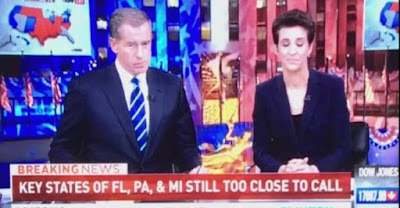“Nothing is off the table. I don’t think you could possibly insult me,” said Robert Azzi. His June 7th talk: “Ask a Muslim Anything” at the Berwick [Maine] Public Library began at 6:00 pm and I arrived five minutes late. Before I could find a seat and unpack my camera and recorder, the Q&A had started. The first question was something about President Trump not inviting Muslims somewhere. I didn’t hear it exactly and Aziz gave an answer critical of Trump and many in the audience giggled appreciatively. It was a clue about the political leanings of speaker and audience.
The first questions were from women concerning Muslim women driving in Saudi Arabia and wearing head coverings. Aziz offered a short history of women in Islam going back to “The Prophet” as he referred to Muhammed, who lived 1400 years ago. He described a rising patriarchy a few centuries ago and strengthening in 20th century Saudi Arabia.
Up to this point, Azzi answered questions graciously. Then a man asked: “Doesn’t that mean that she’s being ‘sharia compliant’ when she wears the head scarf?”
Azzi’s demeanor changed abruptly. “No!” he said.
A woman asked him to repeat the question and he did, whereupon the questioner said: “…and by the way I have several references in the Koran to where it’s mandatory and also in Muhammed’s Sunna…”
Azzi talked over him saying: “Let’s just take one question at a time, shall we?”
“Well, I wanted to go back to the other question…”
“Well, let me — let me talk about sharia for a minute, all right?” said Azzi, clearly agitated.
“Sure, that would be good,” said the man.
“I think, for example, that a lot of Muslims can lead a more sharia-compliant life the United States than they can in most Muslim majority countries, and that is…” Then he stopped, and said testily to the questioner, “Don’t look so puzzled. Let me finish here.” I recalled his opening assertion that nothing would be off the table and he couldn’t possibly be insulted.
“Sharia is not a body of law,” he claimed.
“But it is a body of law,” the man said. “It was codified in ‘The Reliance of the Traveller’ back in the 14th century.”
Talking over him again and stuttering about Torquemada and the Spanish Inquisition, he raised his voice and said: “Now let me finish!”
“Go ahead,” said the man.
“Sharia in the Koran speaks to justice, and authority, and hospitality, and equity…” Then he stopped again. “I’m not finished!” he yelled, though no one had interrupted. “We have a lot of time here. I’m here for two hours.”
“Umm,” murmured the questioner.
“If you would kindly memorize your questions rather than looking at your tablet…” said Aziz scornfully. The man had an iPad in his lap.
Then he lectured us all, saying Americans’ views are affected by their “privilege” and that Middle Eastern countries were “exploited, marginalized, and colonized by Europeans they’re now trying to recover from.” He cited Ferguson, Baltimore, Denver, and Minneapolis/St. Paul as “our own colonies.”
A woman referred to Iran under the ayatollahs, and young people rising against the totalitarian regime. “I think you need to be very careful there,” said Azzi, then blamed everything on a CIA coup more than half a century ago. My suspicion that Azzi and the audience were left-of-center was strengthened. “…if the [western imposed] burdens were lifted off all these countries equally, Iran was probably the most pro-American country in the Middle East,” he claimed.

Another man said Muslims are encouraged to emulate Muhammed and compared him unfavorably with Jesus Christ citing the former’s multiple wives, sex slaves, and consummation of marriage to a nine-year-old. Then he asked how Aziz could leave Christianity and adopt Muhammed’s religion. Aziz seemed to have regained his composure and answered that difficult question fairly well. He said New Hampshire allowed 14-year-olds to marry until recently, that Muhammed’s life was in a different place in time with different mores, and made other points.
“Why are there so many suicide bombers in the Muslim religion?” asked a woman.
He paused for several seconds. “[Because] we’ve entered an age of asymmetrical conflict where the marginalized and the disenfranchised don’t have the weapons and tools of resistance that their oppressors have,” he claimed.
It’s all our fault, I guess.
A woman who grew up in the Middle East suggested culture there valued life less than we do. Aziz said that was racist, that she disdained Muslims because they’re not white Jews, or Christians and privileged, and her statement was offensive. Another man who spent years in Afghanistan said he agreed with the woman. The rest of the audience started snapping at them both. Azzi let that go on a while before wrapping it up.
I left thinking the program might better have been called: “Ask a Muslim easy questions.”






























